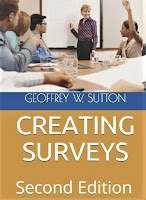Congratulations to Team USA for an outstanding performance at Tokyo 2020 in 2021
I enjoy sports. I used to follow player stats as a boy and kept track of my own even though I wasn't much of an athlete.
The Olympic medals offer an opportunity to see how different presentations of data make a difference. You could even offer more perspectives if you consider many other countries than the top winners.
ALL MEDALS: The USA easily wins overall. Great Britain beats Japan.
 |
| USA WINS OVERALL |
There are of course other factors to consider. Perhaps you thought of some?
Wealth.
Importance of Sport.
The unique problems of COVID-19 infections of some players.
The penalty against Russia whose athletes so well.
Note: The percentage was calculated by dividing the number of medals by the population in millions and rounding.
Read more about Research and Statistics
Applied Statistics Concepts for Counselors on AMAZON or GOOGLE
Learn More in Creating Surveys on AMAZON or GOOGLE
Please check out my website www.suttong.com
and see my books on AMAZON or GOOGLE
STORE
Also,
consider connecting with me on FACEBOOK Geoff W. Sutton
TWITTER @Geoff.W.Sutton
You can read many published articles at no charge:
Academia Geoff W Sutton ResearchGate
Geoffrey
W Sutton




Comments
Post a Comment